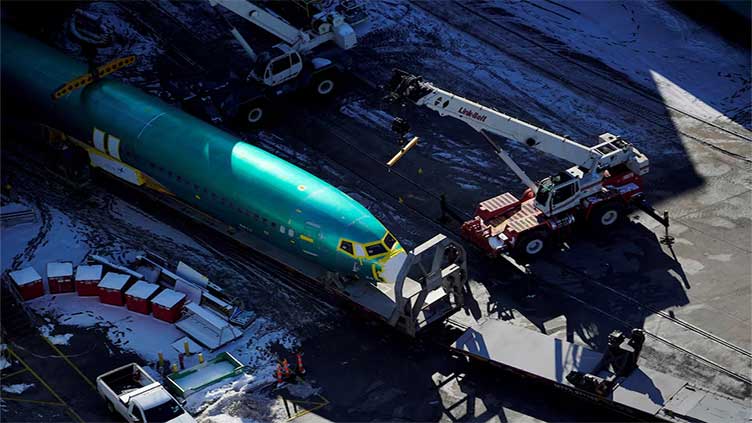Boeing, Airbus exploring framework to divvy up Spirit Aero's operations, sources say

Business
Boeing, Airbus exploring framework to divvy up Spirit Aero's operations, sources say
(Reuters) – Boeing and Airbus are edging towards a potentially coordinated deal to split operations of troubled supplier Spirit AeroSystems, taking on plants needed to support their top jet programmes, people familiar with the matter said.
If successful, any agreement involving the two aerospace giants would end Boeing’s 20-year effort to farm out key elements of its production process as it grapples with a sprawling crisis that erupted after a January mid-air panel blowout on a 737 MAX plane.
But in order for Boeing to regain control of its supply chain, it has to deal with its arch-rival Airbus, which accounts for roughly one-fifth of Spirit’s revenues.
The people said the world’s only two large commercial aircraft makers are exploring how to untangle their respective ties with Spirit through a carefully timed "framework" deal.
All three companies are talking to each other, one of the people said, though the format of the discussions is unclear. It is rare for Airbus and Boeing to cooperate directly except on environmental or safety issues due to antitrust concerns, and it was not immediately clear if they had met face to face.
Until now, Boeing has looked set to buy the whole of Spirit back in one piece and only then tackle how to sell worldwide factories that largely supply its European rival.
An Airbus spokesperson said it was considering various options and declined further comment. Boeing declined comment.
A Spirit spokesman said, "Organisationally, our focus remains on providing the highest quality product to our customers. That will not change."
US stocks finished mostly higher Wednesday after a muted session following a mixed bag of economic data and comments from Federal Reserve Chair Jerome Powell, who said a cut in interest rates was still not in sight.
Any agreement to split and absorb Spirit would accelerate a change of strategy in the aerospace industry as planemakers bring airplane structures in-house ahead of the next wave of costly investments in digital manufacturing.
REVERSING THE SPINOFF
Spirit was spun off from Boeing in 2005 and quickly set about diversifying to supply Airbus, which is now its second-biggest customer behind Boeing. It still makes about 70% of Boeing's best-selling 737, including the fuselage, and supplies large parts of the 787.
Reuters reported last month that Boeing was exploring how to shed Spirit operations that supply Airbus following a potential full takeover of the Wichita, Kansas, firm, partly out of concern that European regulators would object to Boeing controlling them.
Any framework deal would still face regulatory approvals.
Details on which Spirit assets would go to Airbus under a more coordinated framework arrangement are under discussion and there is no certainty of reaching agreement, the people said.
Industry sources say the assets most critical to Airbus are Spirit's Kinston composite parts factory in North Carolina, which makes a central section for the A350 wide-body jet, and Spirit's A220 wings factory in Belfast, Northern Ireland.
Airbus, which was initially seen as the most reluctant of the trio to engage in talks, has signalled that it would object to Boeing gaining even fleeting insight into planning or costs for the A350, or depriving it of resources, the people said.
Spirit, which has a market value of close to $4 billion, has already held exploratory talks with Airbus about selling the loss-making Belfast plant, Reuters reported last month.
Despite efforts to patch together an umbrella deal, the parties are far from agreeing on a value of the Spirit plants that supply Airbus, the people said.
Industry sources say Airbus may have to invest over $1 billion to make the Belfast wings more affordable to build, as it tries to lift the Canadian-designed A220 jet out of the red.
Spirit's flagship Wichita plant, which makes the 737 shells and large parts of the 787 Dreamliner, a rival to the Airbus A350, would go to Boeing in any deal.
The fate of Spirit's smaller plants in Morocco, Scotland and Malaysia remains less clear, and one source familiar said third parties could come forward for at least some of the assets.


